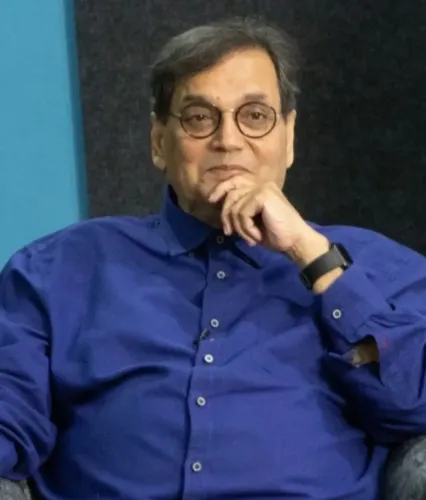Yami Gautam: Can Feminism Have Multiple Definitions?

Synopsis
Key Takeaways
- Feminism has multiple interpretations.
- True feminism is about personal empowerment.
- Yami Gautam’s perspective reflects the evolving nature of feminism.
- Feminism has undergone several significant waves throughout history.
- ‘Haq’ portrays a strong feminist message.
Mumbai, Nov 10 (NationPress) Actress Yami Gautam, who plays the character Shazia Bano in the newly released film ‘Haq’, has expressed that the concept of feminism encompasses a variety of definitions today, and she does not necessarily concur with all of them.
The actress shared her thoughts during a promotional event at a luxurious hotel in the Juhu locality of Mumbai. She labeled ‘Haq’ as a profoundly feminist film while noting that the understanding of feminism has transformed over time, including aspects with which she may not align.
Discussing the film, she stated, “If you possess the courage to narrate a story inspired by a truly brave woman, a woman of substance, who embodies feminism, she is, in my view, a genuine example of what feminism stands for.”
“Feminism today has numerous definitions, and I may not be in agreement with some of them. True feminism is not about combatting others; it’s about advocating for yourself, your children, and for what you believe is rightfully yours. It’s as straightforward as that, so yes, that is my perspective,” she elaborated.
Feminism is a social and political movement that promotes gender equality and women’s rights. The First Wave of feminism, which emerged in the late 19th century and continued into the early 20th century, focused on legal rights, particularly suffrage. The Second Wave (1960s–1980s) broadened its scope to workplace equality, reproductive rights, and challenging traditional gender roles.
The Third Wave (1990s–2000s) celebrated diversity, intersectionality, and personal empowerment, while the Fourth Wave (2010s–present) utilizes digital activism to combat sexism and harassment, as seen in the #MeToo movement. Through these phases, feminism has transformed societies, granting women the rights to vote, receive education, achieve economic independence, and maintain bodily autonomy, turning them from marginalized voices into active leaders in public, political, and cultural spheres.
As with any ideology, feminism has evolved and contains certain extreme elements, much like other movements. Yami Gautam’s insights provide a necessary ‘checks and balances’ mechanism to ensure the movement remains on a positive trajectory.










